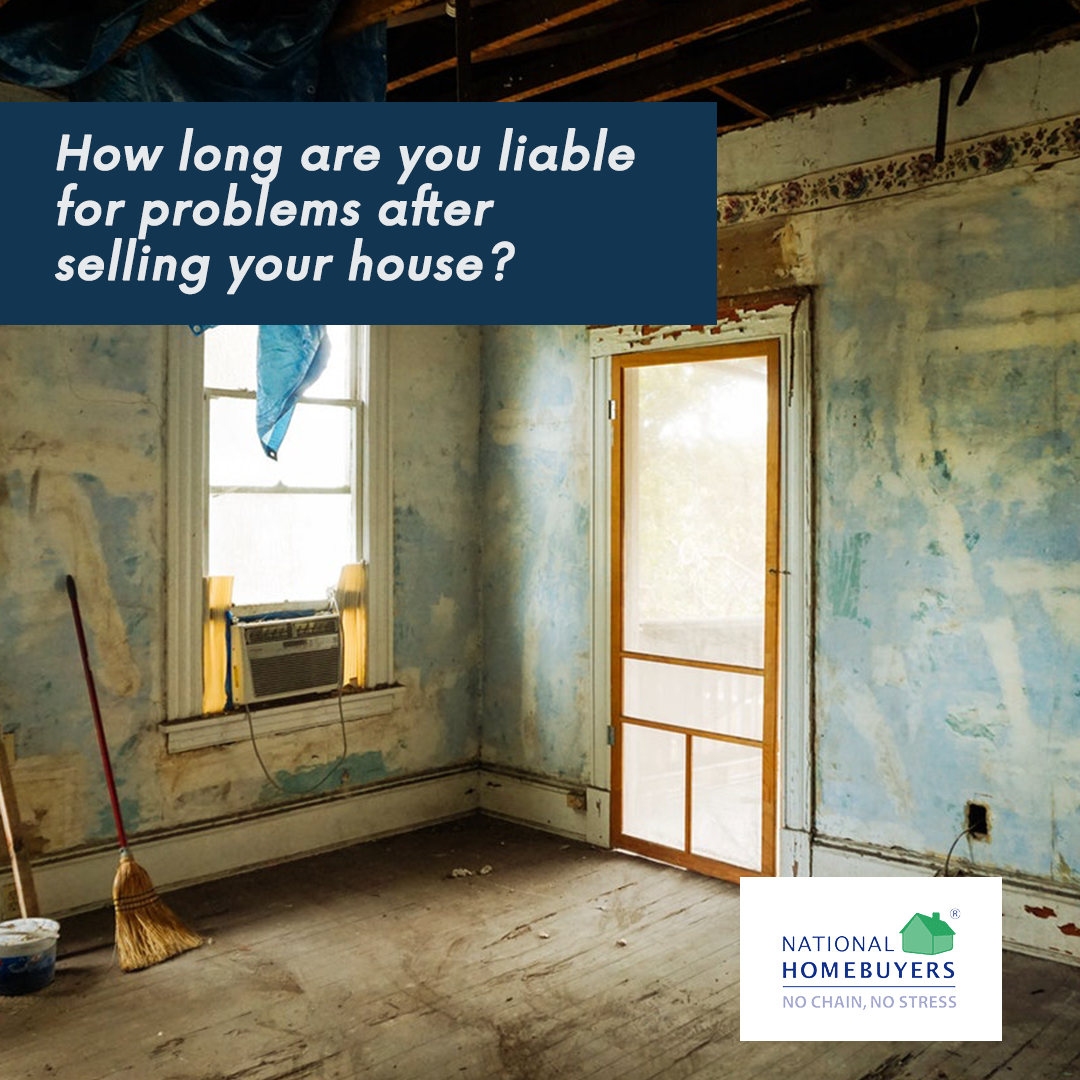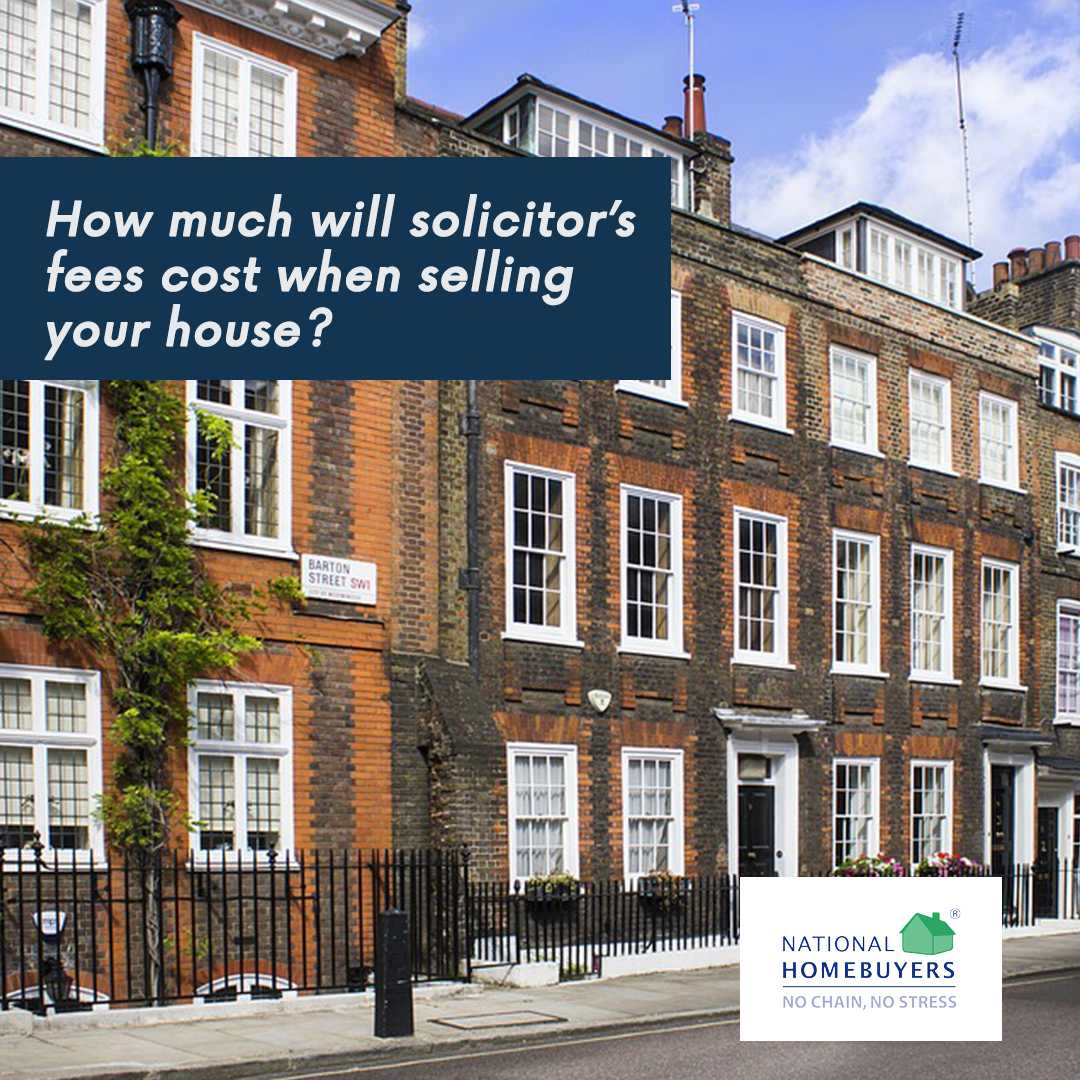How does selling a house with a mortgage work?
How does selling a house with a mortgage work?
For those who are lucky enough to be on the property ladder, as time passes, they may find themselves needing more space than is offered by their current home. So how does selling a house with a mortgage work?
Can you sell a house when you have a mortgage?
Yes, you can absolutely sell a house when you have a mortgage, but they’re may be several situations where it is not considered a viable option.
- If you are planning to sell your house, the condition of the market can have a huge effect on the level of profit you will gain from the sale1. When a lender provides you with a mortgage, the paperwork will always have a clause that states that the loan must be repaid if a sale is completed. If, due to a recession or a stalling in house price increases occurs, your house if worth less than it was when you originally bought it, once the lender has been recompensed you may find yourself with an underwhelming amount of capital leftover for a new deposit2.
- You have fallen behind on your mortgage payments numerous times, which can have a worrying effect on your power to re-negotiate with your lender if you wish to port your mortgage to a new property3.
- If you haven’t lived in your current home very long, and are still bound by a period with an initial introductory offer that provides you with lower interest rates, then selling your home to buy another is likely to cost you an early repayment fee – sometimes as much as 5% of the total loaned amount1.
- The lending criteria set forth by your lender has changed, or your personal credit score has taken a large hit, the options available to you as the owner of an active mortgage may be severely limited2.
These are issues that, for the most part, will not affect the majority of homeowners and are considered quite rare1. Nevertheless, being aware of how these issues can affect you is worth knowing.
What will happen to your mortgage when you sell your house?
If you have an active mortgage on your present home and are looking to sell, you have two main options4:
- You can pay off the outstanding balance of the mixed or fixed term mortgage, then apply for a new one for your new home from the same or a different lender.
- You can apply to port your mixed or fixed term mortgage from your current home to your new home by applying through your lender.
Let’s presume that you are planning to sell a home without porting your mortgage to a new property. In this situation, you would contact your solicitor or licensed conveyancer and discuss your plans4. If they handled the paperwork for the purchase of your present house, it is more than likely that they will already have the information they need to help you get started. If you are using a new solicitor, it is likely that they will need an up-to-date account statement for the mortgage detailing how much of the debt has already been paid, and how much is left to pay1.
Once the lender has been notified that you intend to leave your mortgage early – and you are not subject to any period with an initial introductory offer as mentioned prior – then they will be happy to do so as long as the outstanding balance has been paid off as long as the debt is settled by the resulting profits you earn from the sale of your home5.
Of course, if you then find a new property you wish to purchase then you will need to reapply for a mortgage. However, the conditions may not be as favourable as they had been on your previous mortgage, and furthermore, you may not be in as stronger position as you were when you purchased your previous home3.
Therefore the majority of people who are planning to sell a home with an existing mortgage will decide to take their mortgage agreement with them in an effort to avoid going through the initial application again, and this is known as ‘porting’.
button_link label=”“LOOKING TO SELL YOUR HOUSE FAST?” – GET AN OFFER >” link=”http://www.nationalhomebuyers.co.uk/more-info/our-process/”]
Can you transfer a mortgage to another property?
Yes, you can. Porting a mortgage is a process that is designed to be as painless as possible for an individual selling and buying a new home to help the lender retain business3. Unfortunately, the process itself will inevitably end up being much more complicated depending on your personal situation, and the efficacy of the lender with whom you are dealing.
The benefit of porting the mortgage is that you can avoid paying the thousands of pounds2 extra it would cost to apply for a new one. There are, however, a few aspects that should be researched before pressing ahead:
- If your earnings have fallen between the time you originally applied for the mortgage, when your lender reassesses your affordability, they may not offer you the same amount as before1.
- The house that you are planning to purchase will need to be evaluated by the lender themselves, and its value can heavily affect the size of your monthly repayments5.
- If the house you are planning to buy requires you to borrow more than you borrowed for your original purchase, then the extra amount may be tied to a different interest rate than the rest1.
It is worth noting that depending on your personal situation, your lender may not longer be interested in retaining you as a customer5. This can be devastating for many homeowners who wish to sell, as they may no longer have the earning capacity or spare capital to apply for a new mortgage – which is one of the many reasons why many people find themselves stuck in the same house for years against their will7. A lender may refuse to port a mortgage for the following reasons:
- As mentioned earlier, if you have missed several repayments in the time you have lived at your current home, this would cause a lender to place you in the ‘high risk’ category of customers, and they may refuse to work with you anymore3.
- A lender will only provide capital for people that they can depend on to repay them with interest during the mortgage term. If you are approaching retirement age and wish to port your mortgage, the lender may choose not to continue the agreement due to the likelihood that you may die before the full amount has been repaid1.
- If the home you are planning on purchasing is radically different from your current home, certain aspects may force a lender to cancel the mortgage rather than port it. For example, if you are buying a dilapidated property, a lender will consider it a ‘high risk’ property that they could feasibly lose money on if you were to default on your mortgage and it was repossessed2.
- Your lender may no longer be interested in having you as a customer due to your existing debt levels, earning capacity, or lack of reliability. Since the last recession, many lenders have tightened the criteria surrounding their willingness to lend to avoid losing money5.
While certain lenders may be willing to skip the affordability reassessment in an effort to keep you – a reliable customer – on their books, it is likely that you will face some sort of hurdle in securing a mortgage port.
So, how can you sell your house with a mortgage?
Selling a house with a mortgage is exactly the same as selling a house that is owned in its entirety.
Once you have found a house that you intend to purchase, you can place your home on the market in one of the following ways:
- Find a local estate agent who is willing to list your home. A local estate agent is likely to have an excellent knowledge of the local area and will be able to advise you in regard to asking prices, based on similar sold property prices, the time it will likely take to sell, as well as how to promote the sale.
- Use an online estate agent who offers a flat-fee to list your house for sale. While this has been a growth industry over the past 10 years, as more and more stories emerge from unhappy customers regarding their trustworthiness over hidden fees8, many of these agents are now facing closure.
- Market the property yourself using social media, internet property portals and word of mouth. This is not the most popular method of selling, and for good reason, as the amount of personal time you would have to put in to secure a sale can cause stress levels to go through the roof.
- Use a property-buying company such as National Homebuyers. Property buying companies have the resources to purchase a home for cash, regardless of the condition or situation. This is an excellent way of freeing up capital when time is of the essence and you need to sell your home fast.
If you manage to sell your old home, have an offer accepted on a new home and your lender is willing to port your mortgage for you, then you can look forward to continue growing the amount of equity you hold in your new home, and will get that little bit closer to paying off your mortgage.
Are you in need of a fast house sale? Why not ask National Homebuyers for advice, as we buy any house. Call 08000 443 911 or request a call back to find out how much you could get for your property before it’s too late.
Sources:
1 Brazg, G. (2019). Moving Home With A Mortgage (& Porting) Explained. Available: https://www.theadvisory.co.uk/house-selling/moving-with-a-mortgage/. Last accessed 13th Dec 2019.
2 Lane, M. (2019). Negative equity but need to sell: Your options. Available: https://www.money.co.uk/guides/negative-equity-but-need-to-sell-your-options.htm. Last accessed 13th Dec 2019.
3 Tallis, L. (2019). Porting your mortgage. Available: https://www.moneysavingexpert.com/mortgages/porting-your-mortgage/. Last accessed 13th Dec 2019.
4 Sewraz, R. (2019). Porting a mortgage. Available: https://www.which.co.uk/money/mortgages-and-property/home-movers/selling-a-house/porting-a-mortgage-anhjf0z13md6. Last accessed 13th Dec 2019.
5 Mugleston, P. (2019). A Guide to Porting your Mortgage. Available: https://www.onlinemortgageadvisor.co.uk/remortgages/mortgage-porting/. Last accessed 13th Dec 2019.
6 Blackmore, N. (2014). ‘Port borrowers’ mortgages if they are not taking on more risk. Available: https://www.telegraph.co.uk/finance/personalfinance/borrowing/mortgages/11230990/Port-borrowers-mortgages-if-they-are-not-taking-on-more-risk.html. Last accessed 13th Dec 2019.
7 Anon. (2019). Selling your property to clear mortgage debts . Available: https://www.citizensadvice.org.uk/debt-and-money/mortgage-problems/how-to-sort-out-your-mortgage-problems/selling-your-property-to-clear-mortgage-debts/. Last accessed 13th Dec 2019.
8 Lewis, N. (2019). Shock rise in complaints about estate agency adverts during 2018. Available: https://thenegotiator.co.uk/shock-rise-in-complaints-about-estate-agency-adverts-during-2018/. Last accessed 13th Dec 2019.






